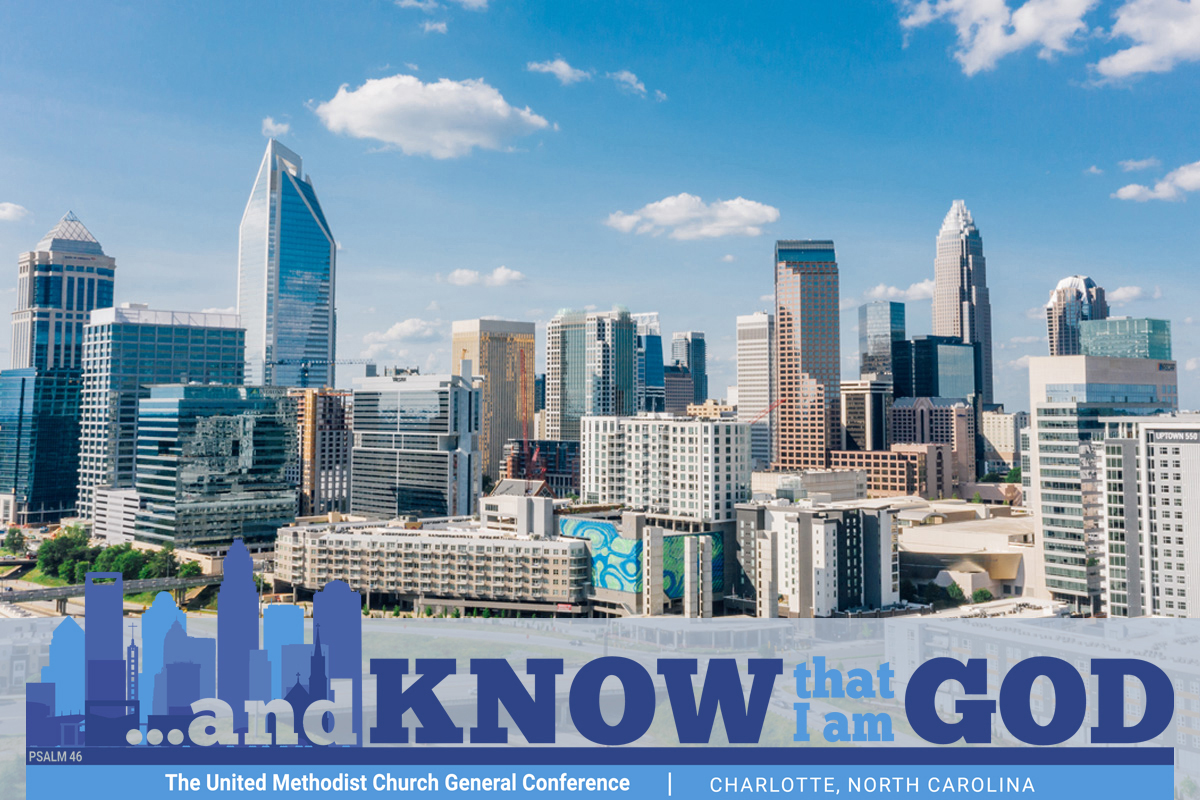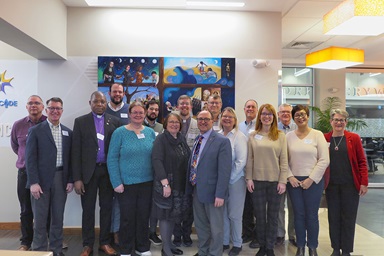Key points:
- The United Methodist Church’s top court has reconsidered its call for an additional regular session of General Conference before 2028.
- The Judicial Council reiterated its ruling that no new delegates be elected to the lawmaking assembly, except under certain conditions.
- The church court said it will be up to General Conference how to handle vacancies to jurisdictional and central conference delegations that meet and elect bishops after General Conference is held.
Reversing part of an earlier decision, The United Methodist Church’s highest court revoked its call for an additional regular session of General Conference between 2025 and 2027.
However, the Judicial Council maintained its earlier ruling that no new delegates be elected to the coming General Conference, except under very limited circumstances.
The next regular session of the international denomination’s top lawmaking assembly, originally planned for May 2020, is now scheduled for April 23-May 3, 2024, in Charlotte, North Carolina.
In Memorandum 1485, the Judicial Council ruled — with italics and bolding for emphasis — “the regular session of General Conference that is to be convened following the upcoming 2024 regular session, would be held four years thereafter, in 2028."
With the memorandum released on Nov. 2, the church court modified its earlier determination in Decision 1472 related to the scheduling of General Conference after the 2024 session.
The modification to the decision comes as the Judicial Council and other United Methodist leaders are contending with delays in General Conference unseen in the nearly 240-year history of the denomination and its predecessors.
The United Methodist Church’s constitution in the Book of Discipline’s Paragraph 14 says the legislative assembly — whose decisions affect the entire denomination — “shall meet once in four years … .”
But COVID threw off that quadrennial schedule, when in 2020, the global pandemic shut down General Conference’s initial venue in Minneapolis as well as travel around the globe.
General Conference draws clergy and lay delegates as well as bishops from four continents. In Memorandum 1485, the Judicial Council noted, “restrictions and emergency measures were not completely lifted internationally until 2023.”
With General Conference now delayed eight years from the last regular General Conference in 2016, the Judicial Council initially said in Decision 1472 that to get the schedule back on track another regular session of General Conference would need to be held between Jan. 1, 2025, and Dec. 31, 2027. Four of the church court’s nine members dissented from that part of the ruling.
The denomination’s Council of Bishops welcomed the ruling and urged the denomination to move forward with planning another regular session in 2026.
However, the board of the General Council on Finance and Administration — the denomination’s finance agency — asked the Judicial Council to reconsider its decision, citing in part the denomination’s financial constraints.
On its own motion, the Judicial Council decided to amend its earlier decision.
“Paragraph 14 of the Constitution establishes the frequency at which the General Conference must convene, not the actual year when this occurs,” Memorandum 1485 said.
The memorandum also clarified its earlier rulings in both Decisions 1472 and 1451 related to delegate elections to the coming General Conference.
“There shall be no elections to replace the delegates elected to serve at the regular session of General Conference initially scheduled for 2020,” the church court said, bolding for emphasis. “Furthermore, there shall be no elections to fill vacancies except in the very limited circumstance referenced herein.”
United Methodist annual conferences — more than 130 church regional bodies around the globe — are responsible for electing the lay and clergy delegates who vote at General Conference.
Since elections in 2018 and 2019 for the coming General Conference, some delegates can no longer serve for various reasons. Those include their death, change of status from lay to clergy or departure from The United Methodist Church amid current church disaffiliations.
The church court said the only circumstance when an annual conference might hold an election for vacant seats is if it has depleted its pool of reserve delegates including reserve delegates to their jurisdictional or central conferences.
Jurisdictional conferences in the U.S. and central conferences in Africa, Europe and the Philippines are the bodies that elect bishops. General Conference delegates as well as an additional number of elected delegates serve these bodies. Delegates elected solely to their jurisdictional or central conference also serve as General Conference reserves.
Basically, the Judicial Council wants to ensure that unless their status has changed, United Methodists duly elected to serve as delegates in 2020 will still be able to do so now that General Conference is scheduled four years later.
The reason for this determination, the church court said, is that — before COVID shut down travel — annual conference secretaries had already submitted the names of duly elected delegates to the General Conference secretary who was prepared to issue credentials to those United Methodists.
The Commission on the General Conference, the group that plans the big meeting, had asked the Judicial Council how to handle vacancies to jurisdictional or central conference delegations resulting from shifts since delegate elections.
The Judicial Council responded that General Conference is the right body to resolve that issue, since the legislative assembly “will convene prior to any future sessions of Jurisdictional and Central Conferences.”
A number of U.S. annual conferences held elections earlier this year to fill vacancies in their jurisdictional conference slates. Bottom line: They will have to wait to see what General Conference decides.
Regular sessions of General Conference are different from special called General Conference sessions like The United Methodist Church held in 2019. Special sessions, which can be called by the Council of Bishops or General Conference itself, can only serve a limited purpose stated in the call.
However, a regular session of General Conference deals with all kinds of legislation affecting church policies and administration. The regular session of General Conference determines the denomination-wide budget and elects members of various church bodies, including the Judicial Council.
The Judicial Council has issued other rulings in the past few years dealing with General Conference’s delay.
In 2021, the Judicial Council ruled that the denominational budget and apportionment formula passed by the 2016 General Conference remains in place until General Conference passes a new budget and formula.
Last year, the church court also ruled each General Conference postponement resets the deadlines for legislative petitions to be submitted to the body, meaning the next General Conference will have more legislation to consider than initially submitted for the 2020 gathering.
Memorandum 1485 marks the first time the Judicial Council referred to the cancellation of the 2020 gathering rather than simply its postponement.
The memorandum also stressed that these rulings dealing with General Conference’s delay should not be deemed as precedent for other General Conferences.
“We have issued these decisions only because these circumstances — triggered by the global pandemic — were not envisioned by General Conference and provided for in the Discipline,” the church court said.
Hahn is assistant news editor for UM News. Contact her at (615) 742-5470 or [email protected]. To read more United Methodist news, subscribe to the free Daily or Friday Digests.




